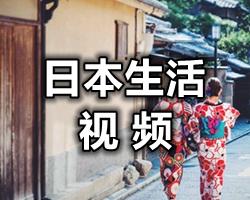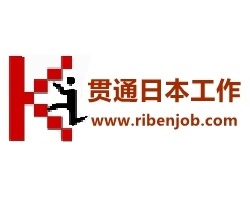|
Ishikawa said her campaign had received more attention from international media outlets than domestic ones, and there was a tendency in Japan to portray the issue as a health one, not a gender one. 石川由美说,国际媒体对她这个活动的关注超过了国内媒体,而在日本,这个问题倾向于被描述成健康问题而不是性别问题。 “Japan is thickheaded about gender discrimination,” she told Reuters in an interview. “It’s way behind other countries in this regard.” 她在接受路透社采访时说:“日本在性别歧视问题上头脑迟钝。在这方面它远远落后于其他国家。” thickheaded ['ʃɑk,hɛdɪd]:adj.愚蠢的,笨的 Japan ranks 110th out of 149 countries in the World Economic Forum’s gender-equality ranking. 在世界经济论坛的性别平等排名中,日本在149个国家中排名第110位。 “We need people to realize that gender discrimination can show up in lots of small ways,” Ishikawa said, from how women are treated by their bosses to expectations that women will do all the housework and child-rearing even if they work. 石川由美说:“我们需要人们认识到,性别歧视可以在很多微小的方面表现出来。”从老板如何对待女性,到人们期望女性即使工作,也要做所有的家务和抚养孩子。 In decades past, businessmen were expected to wear neckties, but that has changed since the government started a “cool biz” campaign in 2005 to encourage companies to turn down air-conditioners and reduce electricity use. 在过去的几十年里,人们希望商务人士打领带,但自从日本政府在2005年发起了一场“清凉商务”运动以来,情况发生了变化。该运动旨在鼓励企业减少使用空调,减少用电量。 “It would be great if the country had a similar kind of campaign about high heels,” said Ishikawa. 石川由美说:“如果日本也能开展类似的拒穿高跟鞋运动,那就太好了。” She said she had been the target of online harassment over the campaign, mostly from men. 她说,在活动期间,她一直受到网上骚扰,主要来自男性。 “I’ve been asked why I need to make such a big deal about this - can’t I just work this out with your company?” she said. 她说:“有人问我为什么要把这件事看得那么重要,我就不能和公司商量解决?” “Or that I’m selfish, that this is just part of etiquette.” “有的说我很自私,这只是一种礼仪而已。” The health ministry said it was reviewing the petition and declined to comment further. 日本厚生劳动省表示,正在审阅这份请愿书,并拒绝进一步置评。 In Britain, Nicola Thorp launched a similar petition in 2016 after she was sent home from work for refusing to wear high heels. 2016年,英国的尼古拉·索普因拒绝穿高跟鞋而被赶回家后,也发起了类似的请愿活动。 A subsequent parliamentary investigation into dress codes found discrimination in British workplaces, but the government rejected a bill banning companies from requiring women to wear high heels. 随后英国议会对着装规范的调查发现,英国职场存在歧视,但政府否决了一项禁止公司要求女性穿高跟鞋的提案。 |
拒穿高跟鞋!日本女星发起网上联名获1.9万网友支持(双语)
新闻录入:贯通日本语 责任编辑:贯通日本语
相关文章
日本跨境电商平台都有哪些?
大爆冷!国乒名将决赛2:3输球,日本小将连胜四位国乒选手夺冠
这位女孩会不会成为日本未来女皇
岸田文雄当选日本第101任首相
第二届岸田内阁启动,新任日外相是岸田培养的接班人?
中方对岸田文雄连任日本首相表示祝贺
日本通信巨头提交故障报告:近1300万用户受影响
日本新任首相:应对新冠疫情等是政府当前要务
日本冲绳附近海域发生6.6级地震
岸田政权“真正起航” 日本政局暗流涌动
日本发生禽流感疫情 将扑杀逾14万只鸡
日本速滑队发生群聚感染 恐将影响对参赛队员的选拔
日本12月启动第三剂新冠疫苗接种 明年3月起开设职场接种点
日本11月9日新增确诊病例204例 重症病例时隔1年3个月低于100例
日航和全日空将从2023年开始在日本国内30个机场共用值机系统
日本政府新设3个数字化主题会议以推动多领域改革
东京吉祥寺附近商业街发生路面塌陷 垃圾收集车被卡住
日本11月1日新增确诊病例86例 降至去年6月以来最低值
三连杀!羽毛球三大团体赛吊打日本 国羽还是牛
日本2020年度“不登校”人数、自杀事件数创历史新高
远程办公不利工作?日本推进工作方式改革在困境中求突破
日本9月信用卡消费指数连续10个月下降 三大百货商场近半年均亏损
塔摩利主持音乐节目34周年 再次打破吉尼斯世界纪录
东京都医疗体制仍维持“3级”警戒级别 呼吁警惕疫情反弹
日本东京车站发生持刀伤人事件 致2人受伤










